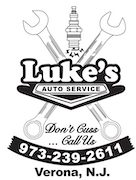

Have you been pouring money into your aging car just for it to break down again, but you’re worried about the hidden fees when it comes to purchasing a new car? Are you wondering if you should sell old faithful and use that money toward a newer car? It’s a big decision. Thankfully, there are some factors that will help make this difficult choice, easier. Here’s what you need to consider if you are trying to decide whether to fix up your old car or buy a new one:
The Costs of Buying a New Car:
Even though the repair cost for your vehicle may seem high, it is essential to understand how expensive buying a new car really is. For a reliable used car, you can expect to pay a minimum of about $2,000 plus tax and registration fees. When it comes to brand new cars, there is an abundance of hidden fees. For example, unless you are paying in cash, you will have to take out a loan which includes financing charges, not to mention sales tax, registration fees, dealership fees, etc. By taking the time to familiarize yourself with the hidden costs of buying a car, you can adequately budget to see if you are ready to replace your car or repair it.
Research, Research, Research!
Start by searching for an online forum, blog post, or article that is dedicated to your specific make and model of car. It’s likely that someone else has faced a similar problem on the same car, and they can let you know just how much more drive time their repair was able to buy them. So how do you know if the cost of a repair is worth it to you? A good rule of thumb in this situation is to buy a new car if the repair would cost more than one year’s worth of car payments — but keep the clunker if it is less. Our technicians at Luke’s Auto Service are also here to help guide you in your decision-making process and will be happy to answer any questions you may have regarding your vehicle.
Consider the Pros and Cons of Both Options:
Repairing Your Car
- Faster than shopping for and buying a newer vehicle.
- No change in insurance costs.
- The car’s history is known.
- Sentimental value.
- Buying a new car is expensive.
- But it could have outdated technology.
- Your repaired car might soon need more repairs.
Replacing Your Car
- Recent cars have advanced safety features.
- Younger cars are more reliable.
- But a car loan is a long-term financial commitment.
- New cars lose value. You can purchase a new car only to realize that its residual value has decreased.
- Purchase can include warranties and sometimes maintenance.
If You Decide to Repair
The simplest way to keep up with maintaining your vehicle and making sure your vehicle lasts as long as possible is to bring it to our auto repair shop located in Verona, New Jersey. At Luke’s Auto Service, we keep a detailed service history and will let you know when the next service is needed for a particular system. If we notice a part that is beginning to wear out, we will let you know so you can have us replace it as your safety is our top priority. The key to making sure your vehicle lasts as long as possible is being able to plan repairs and getting ahead of the problem before it gets worse.
If You Decide to Replace
Even if you decide to part ways with your car, you’ll have to get it running again or sell it as-is for less money. If you can, make the repairs, then repay yourself after you sell the car. It is important to remember that honesty is the best policy when it comes to selling a car with issues.
There is no definite answer on whether to replace or repair your car. Your personal needs will be the determining factor depending on if you are ready to give up on old faithful. You can never know for sure if you made the right call with this kind of repair-or-replace decision. But by coming down to Luke’s Auto Service in Essex County, our technicians will help gather all the information we can about your car’s safety, its common problems, and it’s worth to help you to determine if a repair will serve you better than a newer car. Call us today and learn why area vehicle owners trust our shop for all their auto maintenance and repair needs.
References:
